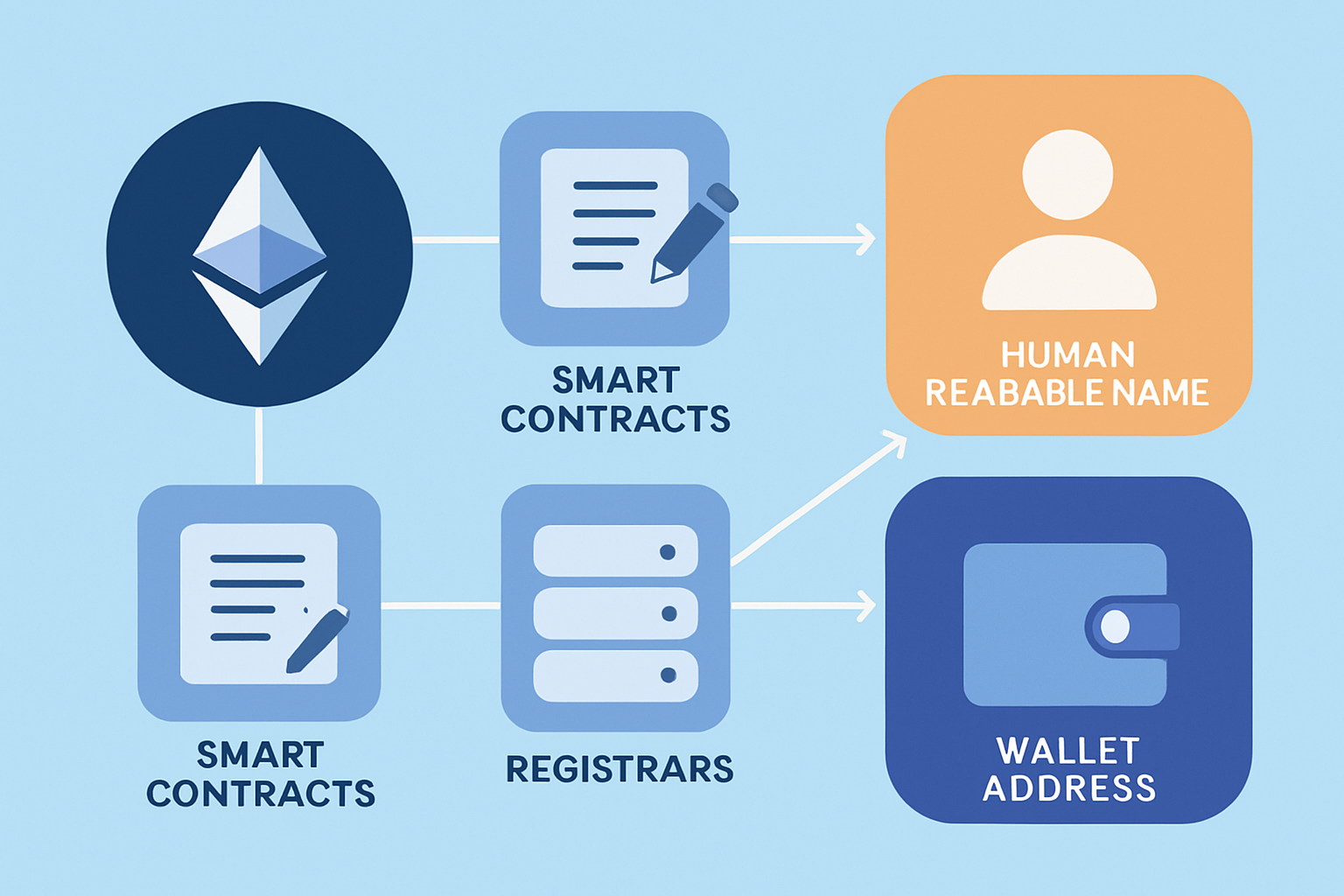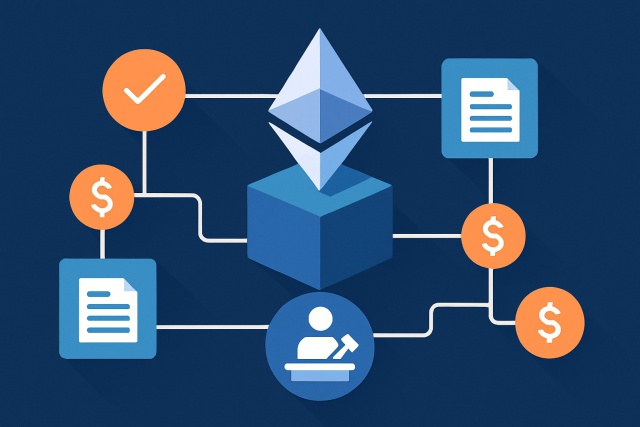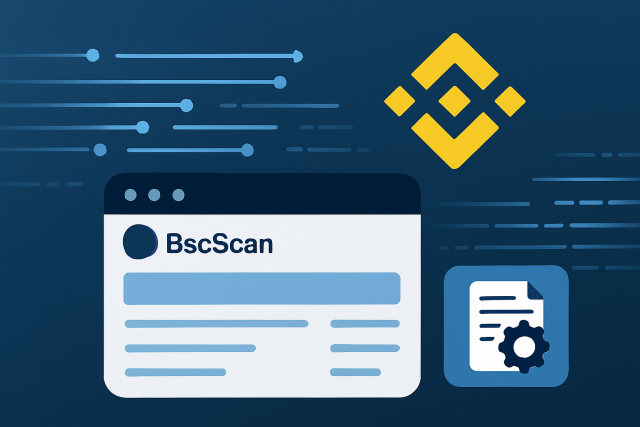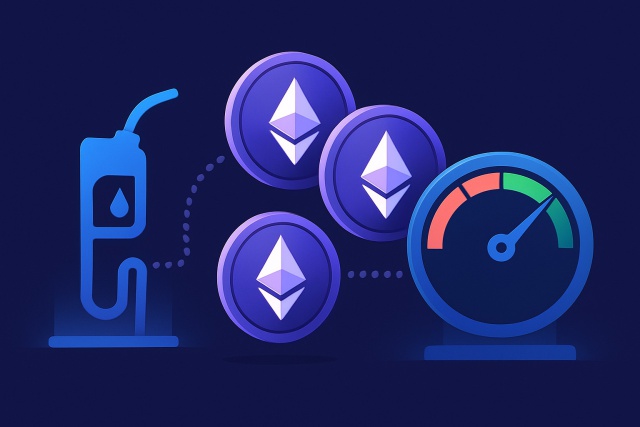Ethereum Name Service (ENS) Explained


The Ethereum Name Service (ENS) was created to solve one of the more annoying hurdles in the Ethereum world: crazily long and complicated blockchain addresses. ENS cleverly swaps out those unwieldy hexadecimal strings for straightforward, easy-to-remember names.
This article lays out the fundamentals of ENS and walks you through how it works and its standout features. It also covers common use cases and the perks it brings to the table.
So, what exactly is the Ethereum Name Service (ENS) all about?
Ethereum Name Service (ENS) is a decentralized naming system that runs on the Ethereum blockchain. It takes long unwieldy Ethereum addresses—think "0x1234..."—and ties them to simple human-friendly names like "alice.eth". This makes the blockchain experience much less of a headache.
ENS was created to tackle one of the biggest headaches in blockchain technology: usability. Ethereum wallet addresses look like a jumble of random characters—take "0x4bbeEB066eD09B7AEd07bF39EEe0460DFa261520" for example—which are a real pain to read or remember and easy to mess up when passing along. It’s like the early days of the internet before we had neat domain names and were stuck juggling numeric IP addresses instead of something catchy like "example.com". ENS makes life simpler by letting you send funds and interact with smart contracts just by typing a friendly name.
What Makes ENS Tick (and Why It Matters)
ENS operates through a clever suite of smart contracts on the Ethereum blockchain that handle the registration, maintenance and resolution of domain names. The key players here are registrars who oversee domain auctions closely, resolvers who act as the backstage crew translating names into addresses and the Ethereum blockchain itself which serves as the ledger keeping ownership records secure and transparent.
Name Registration: Users can register a user-friendly .eth name by interacting with a registrar contract through the official ENS interface. It is straightforward once you get the hang of it.
Expiration and Renewal: Names work more like rentals than permanent ownership. They need to be renewed on time or you could lose access.
Name Resolution: Whenever someone types an ENS name, resolvers spring into action and retrieve the linked Ethereum address directly from the blockchain. This process is smooth and seamless.
Linking to Other Resources: ENS names can store various types of metadata such as crypto addresses for different chains or IPFS hashes for decentralized websites. This makes them very versatile.
Subdomain Management: Owners can create and assign subdomains under their main ENS name. This offers flexible options to share and organize their namespaces like having your own mini neighborhood.
ENS domains end with ".eth" and exist entirely on the Ethereum blockchain, meaning ownership and control stick to blockchain rules instead of the usual registrar playbook. This decentralized setup lets people manage their domains using their wallet’s private keys, which adds a layer of transparency and makes censorship a tough nut to crack. Users can even create subdomains to tidy up content or hand out access without giving up the keys to the castle.

The Main Highlights of Ethereum Name Service A Quick Look
- ENS operates in a fully decentralized and censorship-resistant way with every bit of name ownership securely recorded on the Ethereum blockchain—no middlemen or funny business.
- It hands out human-friendly names that replace long hexadecimal Ethereum addresses and saves you from copy-paste fatigue.
- It supports multi-coin address resolution so a single ENS name can point to different cryptocurrency addresses.
- ENS also plays nice with decentralized websites by linking names to IPFS content hashes, keeping things neat in the decentralized web world.
- It works like a charm with many Ethereum wallets and decentralized applications, making your user experience more straightforward and enjoyable.
ENS tackles some of the trickier challenges that come with using blockchain technology. Because it’s decentralized there’s no single party calling all the shots when it comes to ENS names which helps keep censorship at bay. The human-readable names are a real blessing making sending funds and interacting with dApps feel far less like rocket science. Thanks to multi-coin resolution an ENS name can juggle addresses for Ethereum, Bitcoin and other blockchains all in one place—kind of like a digital Swiss Army knife for your crypto identities. When it comes to connecting to decentralized websites ENS supports Web3 by hosting sites on IPFS which helps cut down on pesky censorship risks.
How ENS Is Used and Why It Truly Matters
- Using ENS names instead of long unwieldy addresses makes sending and receiving cryptocurrencies much easier—no more squinting at random strings.
- Interacting with smart contracts becomes friendlier when you rely on clear readable names instead of cryptic codes.
- Hosting decentralized websites through ENS is a nifty way to keep your content accessible without relying on centralized servers.
- ENS names let users securely verify their Web3 identity and add peace of mind in this wild digital frontier.
- Ethereum-based applications tend to offer a smoother and more enjoyable user experience which lowers the entry bar for newcomers.
Instead of bothering with the long and clunky address "0x4bbeEB066eD09B7AEd07bF39EEe0460DFa261520" you can simply send Ether to "alice.eth"—much easier to remember. Similarly, decentralized websites like "mywebsite.eth" are accessible through IPFS which keeps content safe from censorship.
A Friendly Guide to Registering and Using an ENS Name
Registering an ENS name is surprisingly straightforward and user-friendly. All you need to do is head over to the official ENS app and connect your trusty Ethereum-compatible wallet. Then start browsing for available names. From there you can either snap one up outright or throw in a bid if you’re feeling adventurous.
Hook up your Ethereum wallet like MetaMask to the official ENS website. It’s easy as pie.
Pop over to the search tool and check if that .eth name you’ve been eyeing is still available.
If it’s free you can snatch it up right away. If not you might have to join an auction which works like bidding at a silent auction.
Pay the registration fee using Ether. The cost usually depends on how snappy your chosen name is and how long you want to keep it.
Don’t forget to set your resolver and add Ethereum or other crypto addresses to your ENS records. It’s the digital equivalent of putting your forwarding address on file.
Make sure to renew your ENS domain before it expires unless you’re ready to say goodbye and watch it slip away.
After you register, it’s a good idea to watch your ENS name closely and manage it regularly. Protect your wallet with strong passwords because a weak one invites trouble. If possible, use hardware wallets to significantly reduce the risk of theft. Also, keep an eye on expiry dates so you don’t accidentally lose your domain. When updating records, take a moment to double-check the resolver settings since a small oversight can cause problems later.
Frequent Misunderstandings and Challenges That Often Trip Us Up
Some users often jump to the conclusion that ENS is centralized or assume ENS names come with permanent ownership and no fees attached. Others tend to confuse ENS with a full-on replacement for the traditional Domain Name System, which is a bit of a stretch.
- ENS isn’t trying to replace every web domain. It focuses on the Ethereum ecosystem and a small number of Web3 apps.
- Signing up for an ENS name requires a fee and you need to renew it regularly. Don’t expect it to be free or permanent.
- ENS names don’t automatically protect your privacy because all transactions and ownership records are publicly visible on the Ethereum blockchain.
- Many people don’t fully understand how ENS works which sometimes leads to confusing situations or losing their domains—been there, done that.
Challenges also pop up with name squatting where people grab popular names hoping to flip them for a profit down the line. Ethereum’s gas fees can really sting especially when the network is buzzing with activity. This makes transactions pricier than you would like. Plus if you forget to renew your domains, ownership simply slips through your fingers.
Comparing ENS and Traditional Domain Naming Systems in Detail
| Criteria | ENS | Traditional DNS |
|---|---|---|
| Ownership | Decentralized and managed through Ethereum, putting control firmly in users' hands | Centralized ownership typically handled by registrars, which means a few individuals call the shots |
| Decentralization | Truly decentralized, spreading control across a broad network | Mostly centralized, with clear points of control and management |
| Cost Structure | Registration and renewal fees paid directly on the blockchain, making every transaction transparent | Fees go to registrars for registration and renewal, which can sometimes feel like a middleman taking a cut |
| Use Cases | Perfect for crypto addresses, decentralized websites, and Web3 identities — basically the new frontier of the internet | Mainly used for traditional websites, emails, and the usual internet services we all take for granted |
| Censorship Resistance | Offers robust resistance to censorship thanks to blockchain's design, making it tough for authorities to pull the plug | More prone to takedowns and censorship by authorities, as the centralized nature creates single points of failure |
| Technical Architecture | Runs on Ethereum smart contracts, which is like having code that enforces the rules without any middlemen | Depends on centralized servers and registries, which can sometimes be the Achilles' heel when it comes to reliability or control |
ENS really shines when it comes to blockchain-related scenarios mainly because it gives you decentralized control and stands strong against censorship. Traditional DNS remains the trusty backbone of the broader internet, handling email and everyday websites. Individuals often lean on ENS for their crypto identities and cutting-edge Web3 projects, while still sticking with DNS for legacy systems and their general online presence.
Peeking Into What’s Next for the Ethereum Name Service
The ENS ecosystem, powered by the Ethereum Name Service, is steadily gaining momentum as more people join and fresh technologies debut. Upcoming updates promise to make life easier with lower gas fees, smoother support for more cryptocurrencies, and tighter integration with wallets, decentralized apps, and identity verification tools.
ENS represents a meaningful leap in the world of Web3 identity, handing users genuine ownership and control over their digital footprint in the ever-evolving decentralized internet. It is like finally getting the keys to your own digital kingdom, no strings attached.
Useful Links
Start Your Crypto Journey with Coinbase Today
Ready to enter the cryptocurrency market but unsure where to begin? Coinbase makes buying, selling, and storing digital assets simple and secure for beginners and experts alike.








